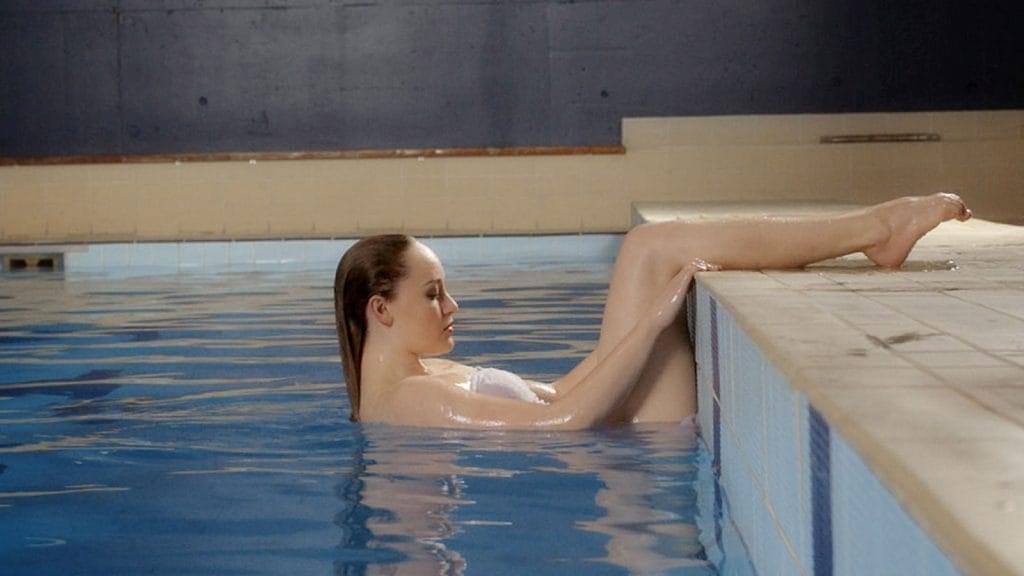
I’m going to do my best to review The Thought Exchange primarily on its technical documentary merit, and not try and get into a detailed explanation, or debate, on the ideas expressed within. Not because I don’t think they are important or qualify for such discussion, but because I feel I would do a disservice to them by focusing entirely on my interpretation based on less than 90 minutes of introduction, when I’m here to review the film, not the philosophy.
Still, for a documentary that illustrates and informs on David Friedman’s interpretation of the missing piece in all those self-help books on manifesting one’s dreams, like The Secret, I can’t discuss it without giving some basics. I apologize if my interpretation or understanding is less than correct, and I urge anyone who reads along and is curious to do more research than to simply take my word for it.
The Thought Exchange takes a simple premise, that so many of us are more than aware that to change our lives we must change our thoughts, and wonders why, if that’s all that matters, that so many of us don’t do it. What is missing?
The answer, basically, is our awareness and reaction to the sensations of our body; not feelings, mind you, but the actual physical sensations that accompany our thoughts. For many of us, based on our past, even the most positive of thoughts or sentiments can bring with it uncomfortable sensations; regardless of how much money we dream to earn one day, if we’ve known pain or heartache in association with money, we may be thinking “money is great” while our stomach turns at the very mention.
The misstep, then, in manifesting our positive thoughts comes with how we then deal with those sensations; if we run from the discomfort and find something more comforting, often a dissenting, negative, though seemingly protective, thought that is more acceptable, we may feel better, but we also won’t get what we want, or at least not to extent we’d like. In other words, it’s not about thinking positive thoughts to feel good so much as it is thinking positive thoughts to manifest our dreams and, whatever sensation those thoughts may cause us, to stick with our positive thought and not run from the discomfort. Making positive change doesn’t always feel good.
Around this idea (again, I apologize for any misinterpretation I may have) are other ideas of seeing the world as a mirror of ourselves. We see what we expect to see, basically, and our thoughts forever color that around us, and how we interpret it. Therefore, change comes from within, and it’s not about waiting for some unknown external force to grant our wishes so much as it is about changing ourselves to the point where we can manifest our dreams ourselves.
It would be easy to pessimistically view this as marketing material, or an infomercial to sell yet another self-help guru or idea to the masses, and I’d be lying if the thought didn’t pass through my mind at least once, but to its credit the film does not really go that route at all. The mentions of David Friedman’s book or workshops are in there because they’re factual; you can’t discuss his ideas without, at some point, mentioning them. So it’s presented less as a sales tactic, and more as background information on what you’re watching. No call to action, “buy my stuff”… if you want to explore the ideas presented in the film even more, there are options, simply.
On the filmmaking side of things, I have a few quibbles with the composition; for example, most of the footage of David Friedman feels too far away, with him too small in the frame. The space surrounding becomes a distraction, when I’m trying to focus on what he has to say, not the room he’s in. Additionally, much of the audio for the interview subjects is not very clean. It’s not like they’re unintelligible, but there is a marked difference between their more muddied sound than, say, that of the audio of Friedman. Finally, from an editing standpoint, beyond a very deliberate pacing, the film feels like it hits a very succinct and obvious climax at the 60 minute mark… but then continues with two more sections. While these sections do offer more interesting ideas, and most specifically give a better picture of Friedman’s own background and life, their placement feels outside of the main narrative. If I were to look at this as a DVD release, for example, the first 60 minutes would be the film, and these two sections would be great extra features.
All that said, none of the criticisms above really take away from any of the ideas expressed within, and so I don’t feel they have too large an impact on the overall enjoyment. I think The Thought Exchange is an intriguing concept, and deserving of more attention and thoughtful scrutiny than I’m able to give it based solely on a film review.
This film was submitted for review through our Submission for Review system. If you have a film you’d like us to see, and we aren’t already looking into it on our own, you too can utilize this service.

